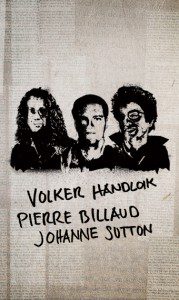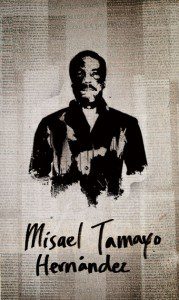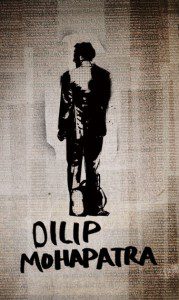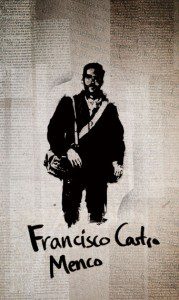11 Nov 2011 | News and features

MURDERED 11th NOVEMBER 2001
Johanne Sutton, Reporter, Radio France International
Pierre Billaud, Journalist, Radio Television Luxembourg
Volker Handloik, Freelance Reporter, “Stern” magazine Taloqan, Afghanistan
Join us in demanding justice for Johanne Sutton, Pierre Billaud and Volker Handloik, the first media casualties claimed by the U.S.-led attack on Afghanistan on 11 November 2001. They were reporting on front-line fighting in northeastern Afghanistan when the Taliban fired upon their armoured personnel carrier.
In Afghanistan, journalists are sometimes caught in the crossfire. But ARTICLE 19 says that over the past five years, the leading cause of death among journalists in warzones has become murder, and that impunity is a primary concern. The Afghan organisation Nai says that 22 journalists have been killed (including six women) and another 23 kidnapped in the decade-long war. Around the world, domestic, regional or international jurisdiction, including the Geneva Conventions, has been largely ineffective in bringing justice or accountability to journalists – a situation leading ARTICLE 19 and many others to call for far greater implementation of a government’s responsibility to protect journalists.
International Day to End Impunity is on 23 November. Until that date, we will reveal a story each day of a journalist, writer or free expression advocate who was killed in the line of duty.
10 Nov 2011 | News and features
 MURDERED 10 November 2006
MURDERED 10 November 2006
Editor and Owner, “El Despertar de la Costa” — Ixtapa, Mexico
Join us in demanding justice for Misael Tamayo Hernández. A security guard came across his naked body in a motel room in Zihuatanejo, a Pacific coastal resort town in the southern state of Guerrero on 10 November 2006. His body was found with his hands tied behind his back. Three small puncture marks on his arm suggested he may have been given a lethal injection. A preliminary autopsy concluded that he died from a massive heart attack.
The motive behind the murder is still unknown, but there are indications it may have been related to his family-run newspaper’s investigative reporting on organised crime, drug trafficking and local corruption. Colleagues and family members at the paper said Tamayo had received death threats a couple of months before his murder, but that he had not taken them seriously.
Take Action: Write a letter demanding justice for Misael Tamayo Hernández
International Day to End Impunity is on 23 November. Until that date, we will reveal a story each day of a journalist, writer or free expression advocate who was killed in the line of duty.
9 Nov 2011 | News and features
 MURDERED 9 NOVEMBER 2004
MURDERED 9 NOVEMBER 2004
Dilip Mohapatra Editor, “Aji Kagoj” — Bhagirathipur, India
Join us in demanding justice for Dilip Mohapatra, 45, who disappeared on 8 November 2004. His body was discovered the next day on the side of a highway in the eastern state of Orissa, with a fatal head wound and his hands and legs bound. Preliminary reports suggested he may have been killed for publishing exposés on the timber and narcotics mafia in the region in his paper “Aji Kagoj”, but the motive was never confirmed.
The International Federation of Journalists (IFJ) believed his murder to be the 100th journalist killed worldwide in 2004. “But these deaths are not just about numbers: we must remember that for every journalist killed there are grieving family members, friends and colleagues for whom these murders will leave a lifelong hole,” said IFJ. With seven unsolved media murders this decade and no apparent political will to prosecute the cases, India retained its spot as number 13 on the Committee to Protect Journalists’ Impunity Index.
Take Action: Write a letter demanding justice for Dilip Mohapatra
International Day to End Impunity is on 23 November. Until that date, we will reveal a story each day of a journalist, writer or free expression advocate who was killed in the line of duty.
8 Nov 2011 | News and features
 MURDERED 8 NOVEMBER 1997
MURDERED 8 NOVEMBER 1997
Francisco Castro Menco, President, Fundación Cultural — Majagual, Colombia
Join us in demanding justice for Francisco Castro Menco, murdered on 8 November 1997. A candidate for the departmental assembly, and president of the Fundación Cultural, a community foundation that ran daily radio broadcasts in the violence-ridden town of Majagual, Sucre.
While Castro tried to make the Fundación Cultural a neutral forum for community news, it represented an independent voice in a region where both armed guerrillas and paramilitary forces are active. Castro hosted a daily programme on community affairs and often called for an end to the violence. Local journalists believe he was murdered because of his appeals for peace but were unsure if guerrillas or the paramilitaries were responsible.
Take Action: Write a letter demanding justice for Francisco Castro Menco
International Day to End Impunity is on 23 November. Until that date, we will reveal a story each day of a journalist, writer or free expression advocate who was killed in the line of duty.




